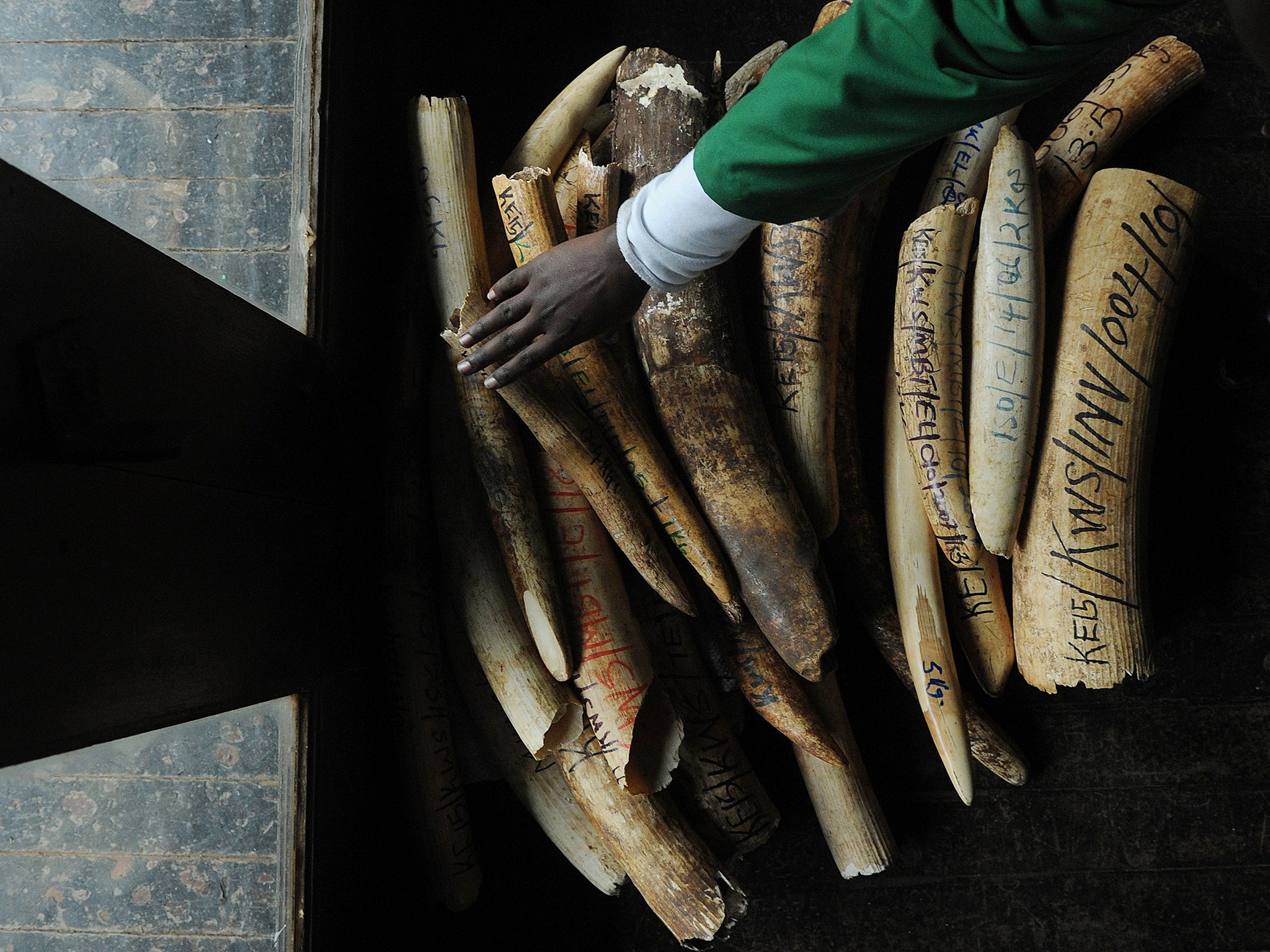Ivory stained with tea to make it look older and bypass the law sold in UK, WWF says
Estimates show around 20,000 elephants are killed by poaching in Africa every year, which means an elephant is killed every 25 minutes

Illegal ivory that is less than 70 years old is being sold in the UK, after it is stained with tea to make it look older and bypass legislation.
Evidence suggests ivory which has been poached from elephants after the 1947 legal cut off date is being sold by antiques and auctioneers, WWF’s UK chief advisor on wildlife Heather Sohl told The Independent.
It came as Parliament debated the future of the UK’s domestic ivory market and conservation charity WWF called for MPs to consider a ban of all ivory trade with a few “reasonable exemptions”.
“We have evidence that ivory, which dates from after 1947 is being sold in the UK as antique ivory. It is not always easy to identify modern, post 1947 ivory, and ivory that has been poached on elephants before 1947. Some pieces of ivory are tea-stained to make it look older. They are literally dipped in tea to stain the piece,” Ms Sohl said.
Last September, the Government announced a ban on the sale of all ivory pieces produced after 1947. The law already made it illegal to sell ivory from elephants killed after 1947 but a loophole allowed dealers to claim the item was classified as “antique”, or produced before 1947, without showing any evidence.
Conservation groups, politicians and celebrities including Prince William criticised the announcement as not enough to stop the illegal killing of thousands of elephants and urged the Government to implement a total ban on all ivory trade.
“We need stricter control than what is there at the moment. We are in talks with antiques and auctioneers about the type of exemptions that would not cause any risk of illegal trading of elephant ivory. Antiques dealers are concerned about whether they are contributing to the killing of elephants, that is one of the key messages that they put across to us,” Ms Sohl said.
Recent estimates show around 20,000 elephants are killed by poaching in Africa every year, which means an elephant is killed every 25 minutes.
CEO of WWF-UK Tanya Steele said: “During the time Parliament debates the UK’s domestic ivory market, another six elephants could be killed by poachers. This is a matter of life and death. It is time for the Government to take all possible action to end the illegal global ivory trade.
“We urgently need the UK to take a stand for elephants, continue to demonstrate global leadership and implement a ban without delay. Such a commitment will send a strong message that the UK refuses to play any part in the illegal ivory trade.
“The world will be looking to London as we host the next illegal wildlife trade conference in 2018. It is vital that we continue to take a strong stance on this illicit activity.”
Speaking at Monday's debate, which followed a petition signed by more than 160,000 people,
Environment minister Dr Therese Coffey said the Government was working on “initial proposals” for a complete ban on the sale of ivory artefacts carved after 1947.
But she rejected calls for a total ban on the domestic ivory trade, describing such a move as "symbolic action".
Dr Coffey said the Government was happy to strive towards "our shared goal of ending poaching and saving elephants".
"The kind of assessment we will need to make is how prohibiting the sale of a 17th-century ivory carving would prevent the poaching of elephants today," she said.
"We must make sure our rules are robust and proportionate and will achieve the aim of ending the poaching of elephants."
A total ban on ivory trade would send a strong message to other countries, where there continues to be a demand for ivory.
China, which is home to the world’s greatest legal and illegal ivory markets, announced it will ban domestic trade by the end of 2017. The US has also introduced a near total ban and Hong Kong said it has committed to closing its domestic market.
The Department for the Environment, Food and Rural Affairs (Defra) is expected to announce a consultation on a ban in the coming days.
The illegal wildlife trade is the fourth largest illegal trade behind drugs, human trafficking and counterfeiting, worth over an estimated £12 billion annually.
Join our commenting forum
Join thought-provoking conversations, follow other Independent readers and see their replies
Comments
Bookmark popover
Removed from bookmarks